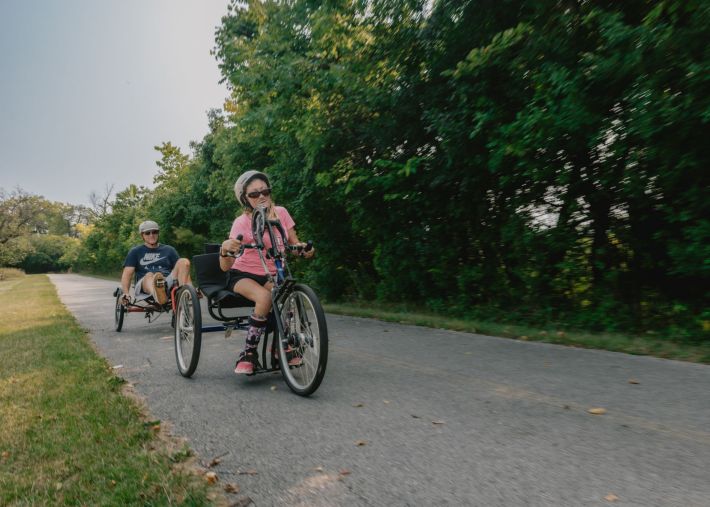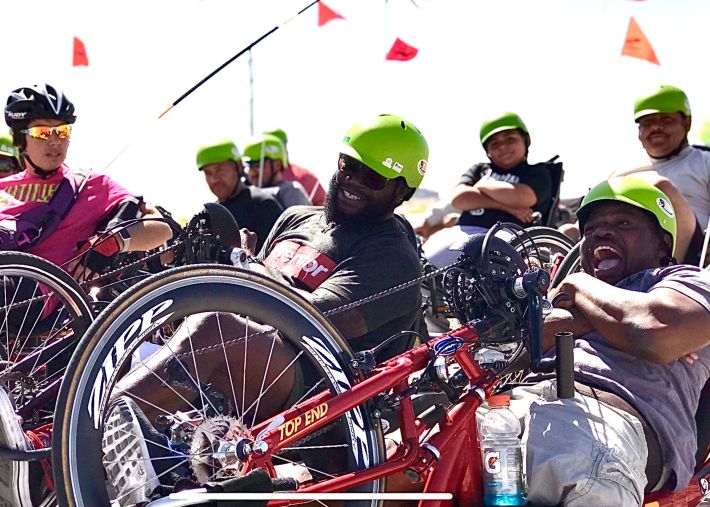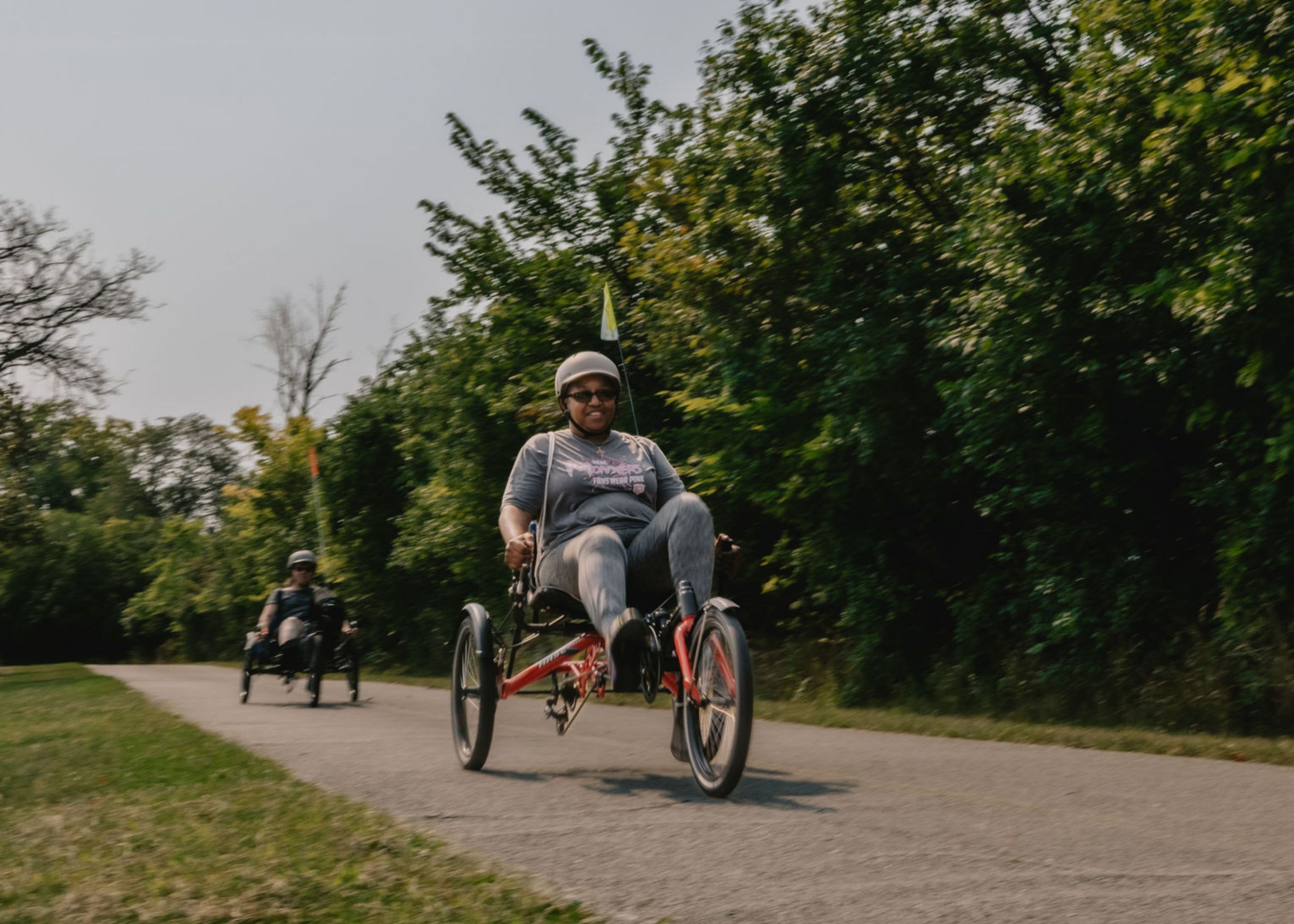Often people with disabilities are left out of bike share programs. So far, Chicago’s bike-share system Divvy has been no different. In an effort to increase transportation equity in our city, the Chicago Department of Transportation and Divvy are hosting a series of free adaptive cycling sessions for riders with disabilities. The sessions will be led in partnership with Adaptive Adventures, a national organization providing adaptive recreation experiences. Attendees will have access to a tandem bike, hand cycle, or recumbent bike.
CDOT Commissioner Gia Biagi said in a statement that the sessions as a way to “Help make cycling a more inclusive, inaccessible activity for Chicagoans with disabilities. Chicago continues to lead the way in bike-share innovation, and the coming sessions are the latest example of how we are working to meet the mobility needs of our residents.”

The vice president of transit, bike and scooter policy at Lyft, the operator of Chicago’s Divvy bike share system, Caroline Samponaro stated, “The goal of these adaptive cycling sessions is to extend access to cycling to people with disabilities. Adaptive cycles can be expensive, cumbersome, and difficult to store for many Chicagoans with small apartments. These sessions allow novice and experienced riders alike to hop on a bike and enjoy the ride with a community of cyclists.”
Adaptive cycling sessions for this year:
- Thursday June 30th (10am-2pm) at Douglass Park
- Thursday August 4th (10am-12pm) at Montrose Harbor
- Thursday August 25th (10am-12pm) at Marquette Park
- Thursday September 1 (10am-12pm) at Douglass Park
- Thursday September 29th (10am-12pm) at 31st Street Beach Lakefront Trail
- Tuesday October 18th (10am-12pm) at Marquette Park
Adaptive Adventures staff and volunteer guides will be onsite at each session to answer questions, help riders select the right cycle, provide training and encouragement, and offer safe storage of attendees belongings. Adaptive Adventures is hoping to expand to more locations this summer, including parks on the south and west side, with Lyft's support.

The cycling sessions are based on several adaptive cycling models in New York City, San Francisco, and Portland. Lyft led community outreach sessions and found that riders with disabilities want adaptive cycling experiences that provide recreation, socialization, and exercise rather than one-way trips, commuting, or errands. Several barriers to adaptive cycling cited by riders include the expense of purchasing and storing adaptive cycling equipment, a lack of training or familiarity with adaptive cycling, and a lack of physically safe opportunities to attempt cycling. Hopefully the sessions with CDOT, Divvy, and Adaptive Adventures can help address these barriers by providing a free and safe opportunity to enjoy cycling.






